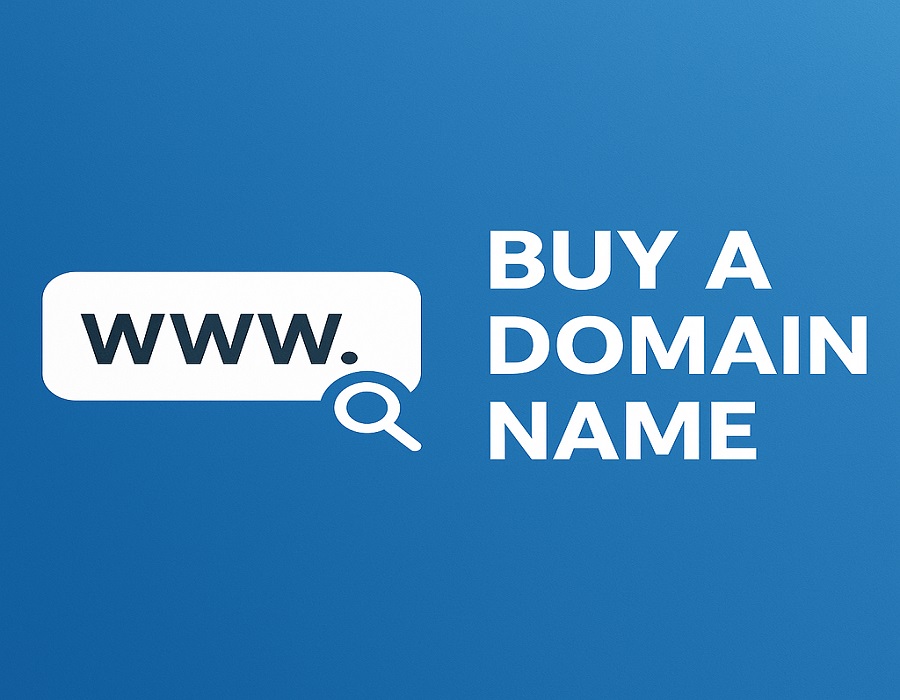In today’s digital landscape, your domain name is more than just an address on the internet—it’s your brand’s first impression, your identity, and the psychological trigger that influences how customers perceive and remember you. Whether you’re launching a startup, personal blog, or eCommerce store, understanding the psychology behind great domain names can help you stand out, build trust, and attract the right audience.
If you’re ready to make your mark online, knowing the mental and emotional principles that guide how people respond to domain names is essential before you buy a domain name.
Why Psychology Matters When You Buy a Domain Name
Humans are emotional decision-makers. We don’t just process information logically; we react to how something makes us feel. This means your domain name should do more than describe what you do—it should create a feeling of connection, curiosity, or confidence.
When you buy a domain name, you’re essentially buying digital real estate for your brand. Just as you wouldn’t pick a storefront in a bad location, you shouldn’t pick a domain that fails to attract attention or build trust. A psychologically effective domain name taps into how the brain processes language, emotion, and memory.
1. The Power of Simplicity
Our brains crave simplicity. Cognitive psychology tells us that humans can only hold a limited number of items in short-term memory—usually around seven. That’s why short, simple domain names are easier to recall, type, and share.
Think about brands like Google, Apple, or Nike. These names are short, distinctive, and easy to spell. The same principle applies online: simple domain names minimize friction and maximize recognition.
When you’re about to buy a domain name, test it by saying it out loud and imagining how easily it could be remembered by someone hearing it for the first time. If it’s easy to pronounce and recall, it’s psychologically optimized.
2. The Emotional Connection
Great domain names often evoke an emotional response. Emotions drive decisions, and people tend to engage more deeply with names that feel right.
For instance, names like Calm.com, Brilliant.org, or HopeForPaws.org instantly spark an emotional association. They communicate values, purpose, or outcomes. A great domain doesn’t just tell you what the brand is—it makes you feel something about it.
Before you buy a domain name, consider what emotion you want your audience to feel when they see it. Should it convey trust, innovation, luxury, or creativity? Aligning your domain with the right emotional tone can enhance its impact dramatically.
3. The Linguistic Edge: Sound and Flow
The way a word sounds affects how people perceive it—a principle known as phonetic symbolism. Certain sounds subconsciously convey specific qualities.
-
Hard consonants (like “k,” “t,” and “p”) often feel energetic or bold.
-
Soft sounds (like “m,” “l,” or “s”) feel calm or sophisticated.
For example, TikTok has a punchy, rhythmic quality that fits its dynamic personality. In contrast, Lush.com feels smooth and elegant, matching its brand essence.
When you’re about to buy a domain name, say it out loud. Does it roll off the tongue easily? Does it sound trustworthy, fun, or professional? Sound can subtly influence how your brand is perceived—even before visitors know what you offer.
4. The Trust Factor
Trust is one of the most critical elements in online behavior. People make split-second judgments about whether a website seems legitimate based on its domain.
A well-chosen domain name builds credibility instantly. Studies show that users are more likely to trust websites with clear, professional, and authoritative names. This is why major companies invest heavily in premium domains—because they know trust translates into conversions.
Avoid complex or suspicious-looking names, numbers, and random characters. A trustworthy domain often uses .com, .org, or .net, though new TLDs like .io or .ai are becoming popular in tech circles.
Before you buy a domain name, consider how it looks in an email address or ad. If it feels reliable at first glance, it’s already doing psychological work for your brand.
5. The Memory Hook: Making It Stick
The best domain names are sticky—they linger in your mind after you hear them once. Psychology calls this “the fluency effect,” meaning the easier something is to process, the more we like and remember it.
A domain that’s short, pronounceable, and distinctive sticks because it’s fluently processed by the brain. This is why names like Reddit, Spotify, or Airbnb are memorable—they’re unique yet simple enough to recall instantly.
When you buy a domain name, test its memorability. Share it with a few people and ask them to recall it an hour later. If most can, you’ve found a strong contender.
6. The Role of Familiarity
Humans are drawn to what feels familiar. This is known as the mere exposure effect—the more we encounter something, the more we tend to like it.
That’s why using familiar words or structures can make a domain more appealing. For example, Shopify, Grammarly, and Spotify all use familiar linguistic patterns that sound trustworthy and modern.
When you buy a domain name, consider blending originality with familiarity. A completely abstract name might be hard to remember, but a slightly familiar twist can make it feel instantly likable.
7. The Importance of Relevance
Your domain name should align with what your brand offers or represents. A mismatch can create confusion or distrust.
For instance, Booking.com perfectly reflects its service—booking travel accommodations. On the other hand, if your domain name doesn’t give any clue about your business, users may struggle to connect the dots.
Before you buy a domain name, ensure it resonates with your niche and audience expectations. If your brand is about innovation, choose something sleek and modern. If it’s about community, opt for warmth and connection.
8. The Psychology of Ownership: Why Buying the Right Domain Feels Empowering
When you buy a domain name, you’re not just securing a web address—you’re claiming ownership of your digital identity. Psychologically, ownership creates a sense of pride and commitment.
This concept, known as the endowment effect, suggests that people value things more once they own them. That’s why entrepreneurs feel more motivated once their brand has a domain—it’s tangible proof of progress and potential.
Choosing the right domain name can fuel motivation, attract investors, and establish a sense of legitimacy for your project or company.
9. How to Apply Psychology When You Buy a Domain Name
Here’s a practical checklist to apply psychological principles before you buy:
✅ Keep it short and simple – Aim for under 12 characters.
✅ Choose emotionally resonant words – Align with your brand’s tone.
✅ Prioritize clarity – Avoid ambiguity or hard-to-spell names.
✅ Test the sound – It should be pleasant and easy to pronounce.
✅ Ensure credibility – Stick to recognizable extensions like .com when possible.
✅ Make it memorable – It should be easy to recall after hearing it once.
✅ Check availability and trademarks – Protect your brand from legal risks.
Following these principles helps you find a name that not only performs technically but also connects psychologically.
Final Thoughts: The Mind Behind the Click
In the crowded digital marketplace, standing out takes more than clever marketing—it takes understanding how people think and feel. The best domain names succeed because they appeal to human psychology: they’re simple, trustworthy, emotionally engaging, and easy to remember.
Before you buy a domain name, think about what you want people to feel when they see it. Every letter, syllable, and sound matters. When your domain connects emotionally and cognitively, it doesn’t just attract visitors—it builds a brand that lasts.
So, the next time you’re ready to buy a domain name, remember: you’re not just purchasing a URL. You’re crafting a psychological bridge between your brand and the minds of your audience.

